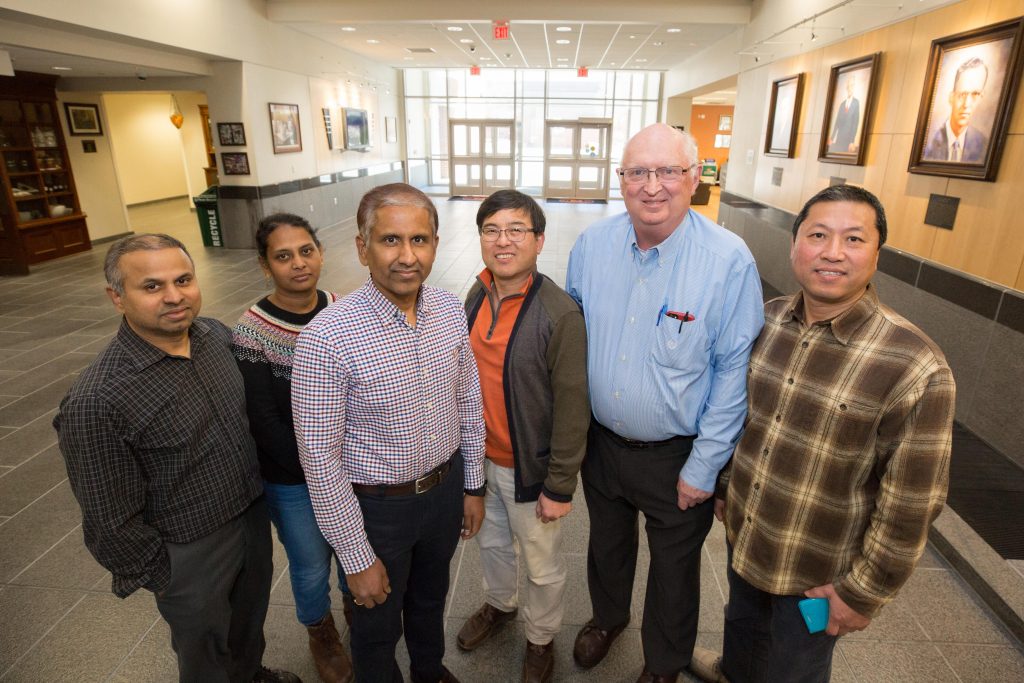
Ramesh Narayanan, PhD, associate professor in the Department of Medicine-Hematology and adjunct associate professor in the Departments of Urology and Pharmaceutical Sciences at the University of Tennessee Health Science Center (UTHSC), has been awarded over $2 million from the National Institutes of Health (NIH) to develop novel tools and next generation drugs designed to treat aggressive forms of prostate cancer.
According to research, approximately 160,000 men were diagnosed with prostate cancer in 2017 and over 3.3 million men living with prostate cancer in the United States. Those numbers are expected to rise to 4.5 million survivors by 2026.
“Currently, treatment options for advanced castration-resistant prostate cancer are limited to hormone therapy, also known as androgen receptor-targeted therapy,” Dr. Narayanan said. “Although these treatments extend the time elapsed between treatment initiation and tumor progression or death, approximately 30 percent of the tumors do not respond to these therapies and the remaining develop resistance shortly after.”
One of the primary reasons for relapse, according to Dr. Narayanan, is “constantly active androgen receptors that lack a hormone binding mechanism, which causes cells to become abnormal and multiply without control or order to form a tumor.”
“To overcome this, we have discovered novel androgen receptor antagonists known as selective androgen receptor degraders, or SARDs, that bind to, inhibit, and degrade the overactive receptors,” Dr. Narayanan said. “These SARDs suppress the growth of prostate cancer cells and tumors.” The SARDs are out-licensed to Memphis-based biotech company, GTx, Inc.
Dr. Narayanan and his collaborator Duane D. Miller, PhD, professor emeritus in the Department of Pharmaceutical Sciences at UTHSC, are testing these novel drugs designed to specifically target the overactive androgen receptors, and the preclinical data is very promising.
“Long term, these next generation drugs could help prostate cancer patients who have exhausted all other options,” Dr. Narayanan said. “They will have another opportunity, potentially extending their lifespans.”
Dr. Narayanan’s project titled, “Novel Degraders of the Androgen Receptor (AR) and AR Splice Variants (AR-SVs),” is being funded for five years.
